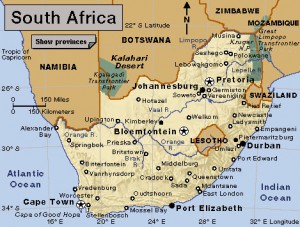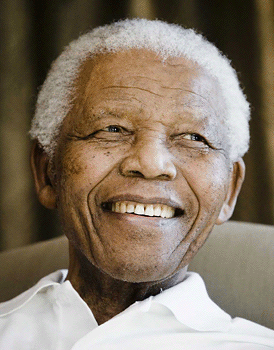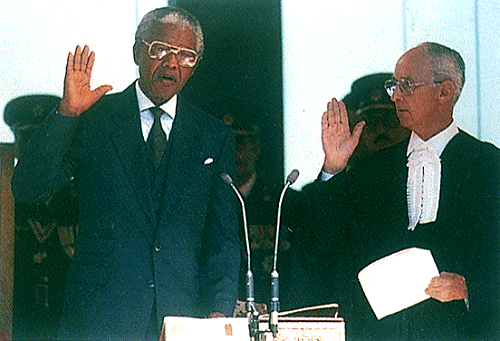Nelson Mandela 100
Wednesday, July 18th, 2018July 18, 2018
On July 18, 1918, 100 years ago today, activist and politician Nelson Mandela was born in the Transkei territory (now the Eastern Cape province) of South Africa. Mandela, the first black president of South Africa, was instrumental in ending apartheid, a policy of strict racial segregation, and he helped unify a very fragmented nation. His efforts earned him international admiration and a Nobel Peace Prize. Mandela is remembered as the father—or tata—of modern South Africa, where July 18th is celebrated annually as Mandela Day. Commonly called by his clan name, Madiba, Mandela died on Dec. 5, 2013, at age 95.
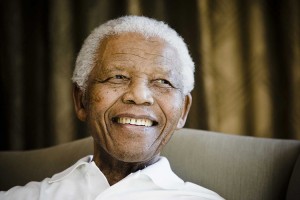
Nelson Mandela was the first black president of South Africa. He was born 100 years ago today on July 18, 1918. Credit: © AP Photo
To honor Mandela on what would have been his 100th birthday, South Africa issued a special set of bank notes and gold coins depicting Mandela’s upbringing in rural Eastern Cape; his 27-year incarceration; and the end of apartheid. Yesterday, on July 17, 2018, former United States President Barack Obama delivered a Mandela Day speech before 15,000 people in Johannesburg, South Africa’s largest city. The United Nations is sponsoring centenary events for its Nelson Mandela International Day and hosting a “Building on the Legacy of Nelson Mandela” exhibit at its headquarters in New York City. The Nelson Mandela Foundation is dedicating this year’s anniversary to Action Against Poverty, an independent development organization that helps poverty-stricken people in northeastern Africa.
Mandela had a long history of protesting against apartheid, and he paid a heavy price for it. In 1962, he was imprisoned on charges of conspiring to overthrow the white minority government. While in prison, Mandela became a global symbol of the struggle for racial justice. After his release in 1990, he led negotiations with white leaders that eventually brought an end to apartheid and established a nonracial system of government. From 1991 to 1997, Mandela served as president of the African National Congress (ANC), a group that helped win political and civil rights for the country’s blacks.
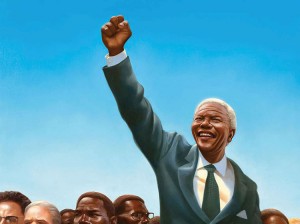
This illustration is from Nelson Mandela, a picture book biography by African American illustrator and author Nelson Kadir. Credit: © Kadir Nelson, Harper Collins
Mandela and then-President Frederik Willem de Klerk of South Africa shared the 1993 Nobel Peace Prize. They were honored for their work to end apartheid and to enable the country’s nonwhites to fully participate in the South African government. In 1994, South Africa held its first elections in which people of all races could vote. Blacks won a majority of the seats in a new National Assembly, and the Assembly selected Mandela to be president. The election marked the beginning of a new era in South Africa. Mandela served as president until 1999, when he retired from public service.

